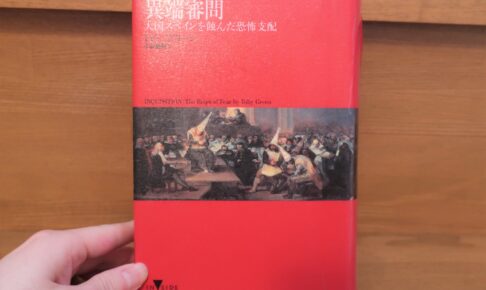(8) The precursor to the self-destruction of power in medieval Spain: the evils of a powerful bureaucracy and vast administrative affairs "Learning from the Medieval Inquisition" ⑻.
The repression and exile by the Inquisition was not merely a political issue; it was also tremendously damaging to the economy. This quote is one of the most memorable in the book.
We are reminded here that eliminating others will ultimately strangle us. We may think that we have defeated the bad guys by letting our emotions get the better of us, but in reality, we have not solved any of the problems.
This is the same today. They make someone look bad, attack and eliminate them as they are responsible. Time goes by without discussing what really needs to be looked at and without taking any action...
The result is a terrible loss and a country in decline... The Spanish Inquisition is no stranger to this. This is exactly the problem we are facing now.









































